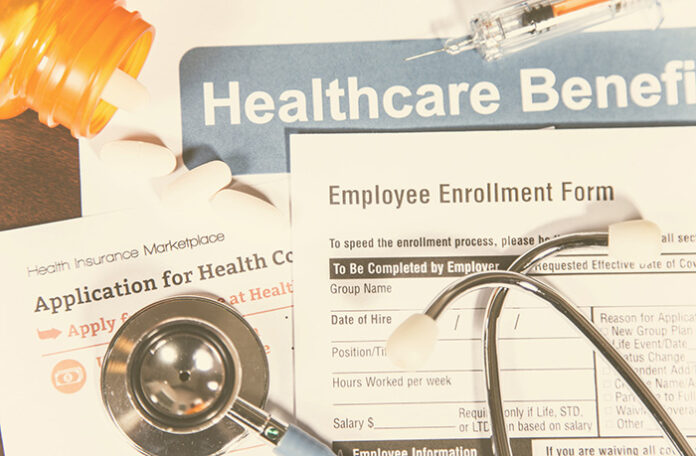Three months into the new Biden administration, predictions about shifts in federal positions on healthcare and benefits policy are starting to materialize, although employers are certainly still awaiting federal movement on a number of hot-button issues that could affect their benefits strategies. Jim Klein, president of the American Benefits Council, advises employers to craft benefits policies, not in anticipation of possible federal changes, but rather that are tailored to the needs of their particular employee base.

He will delve more into the pressing questions facing benefits and HR leaders during his keynote at the upcoming Health & Benefits Leadership Conference, a free, virtual event May 11-13. Register here.
Before the conference, Klein spoke with HRE about how HR and benefits leaders can keep up with shifting federal positions, all while working to engender trust from their workforce.
HRE: How do you think the COVID-19 pandemic will impact the healthcare priorities of the new Biden administration, particularly on issues like paid leave?
Klein: The pandemic has certainly put the issue of paid leave high on the agenda for Congress and the Biden administration. There will be at least [one]–most likely two–more major legislative efforts to respond to the pandemic and paid leave is sure to be part of this effort. The Biden administration’s infrastructure initiative is not just about roads and bridges. They are focusing on “family infrastructure,” and issues related to health coverage and paid leave are important components of this effort.
The leading Democratic proposal for the past few years would establish a new payroll tax-based entitlement program. It seems unlikely there would be enough support in Congress to do that. But a mandate on employers is certainly within the realm of possibility. Critically important for national employers is the need for any federal legislation to pre-empt the myriad state and local leave laws that are not only administratively burdensome but also preclude employers from providing a consistent paid leave program to all employees, regardless of where they live or work.
See also: Biden to employers: Give time off for COVID-19 vaccinations
HRE: What are the retirement policy issues that you think are primed to gain the most federal action in the coming months?
Klein: There is bipartisan support in Congress for proposals to do several things, including:
- increasing to age 75 the requirement to begin retirement plan distributions
- strategies to help make payments to missing participants,
- increasing “catch-up” contributions for older workers, and
- promoting “matching” contributions into 401(k) plans for individuals making student loan payments.
Additionally, there are proposals just being advanced by Democrats to do a number of things, including ensuring that employees who work at least 500 hours per year in two consecutive years (rather than the current three) must have access to participate in a plan and requiring that employers either sponsor a retirement plan or provide for payroll deduction into an Individual Retirement Account. These proposals do not require employer contributions to the plans. Depending on whether legislation proceeds on a bipartisan basis or as part of a Democratic-only budget measure will determine which of these proposals has the opportunity to move forward.
HRE: The American Benefits Council’s recent research in The Journal of Total Rewards found that the number of voters who most trust employers is more than double the number that most trust the federal government–how can employers leverage this in terms of their own benefits strategies?
Klein: Communications is the name of the game. Employers add so much value to employee benefit programs beyond the substantial financial investment in providing the benefits. Employers lead the way in directing workers and their families to the highest-quality health providers. Employers don’t just contribute to 401(k) plans, but [they] also provide financial education to help workers make informed investment decisions. Employers are innovators in terms of programs to help workers manage student loan debt and–as the pandemic has highlighted–provide savings for emergencies. The high marks for trust in employers suggest that most employees are aware of all of this. But creative and continued communication to plan participants is critical to ensure they understand all that their employers are doing on their behalf.
HRE: What can HR leaders and benefits professionals be doing now to prepare for potential changes to federal healthcare and benefits policy?
Klein: In terms of plan design and operations, don’t wait to see what Congress may do. Make the decisions you feel are in the best interest of your employees and your organization. In terms of compliance, expect to see a lot of activity from the executive branch agencies: Department of Labor, Treasury, IRS and others. The administration can act unilaterally, even if there is gridlock in Congress. And from the standpoint of public policy, make your voice heard! No one knows better than HR and benefits professionals how proposed legislation and regulations will affect the plans you sponsor. Make sure your elected officials understand the implications–positive or negative.





